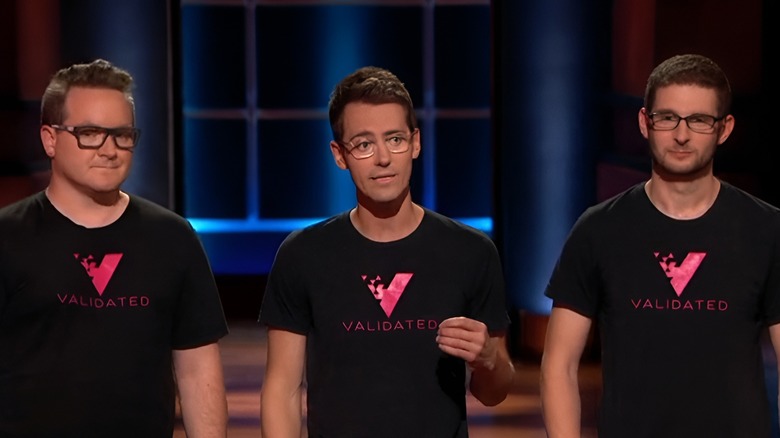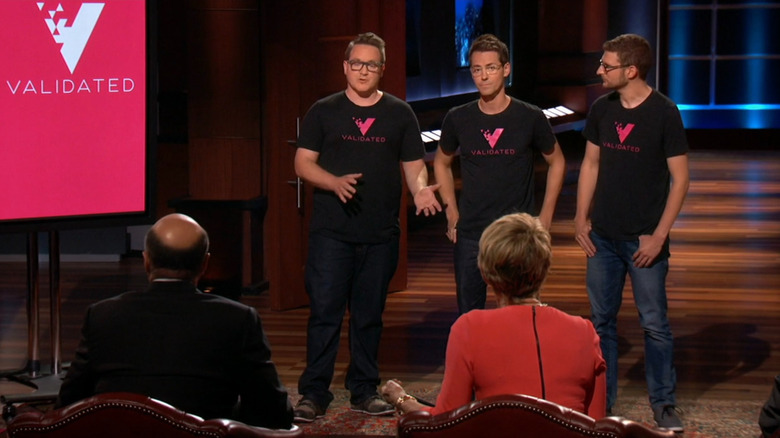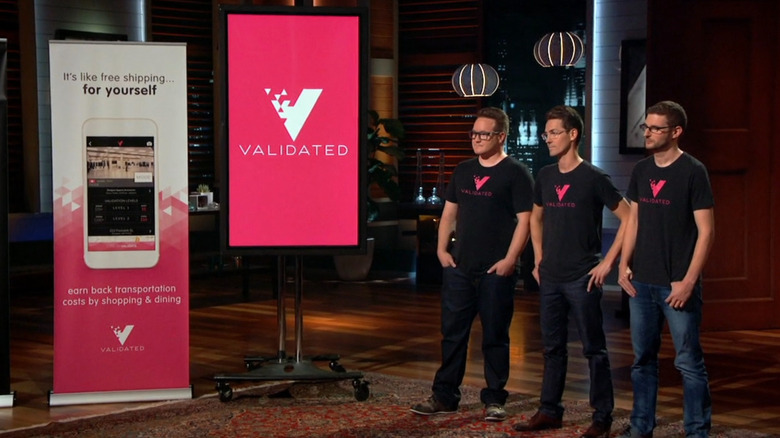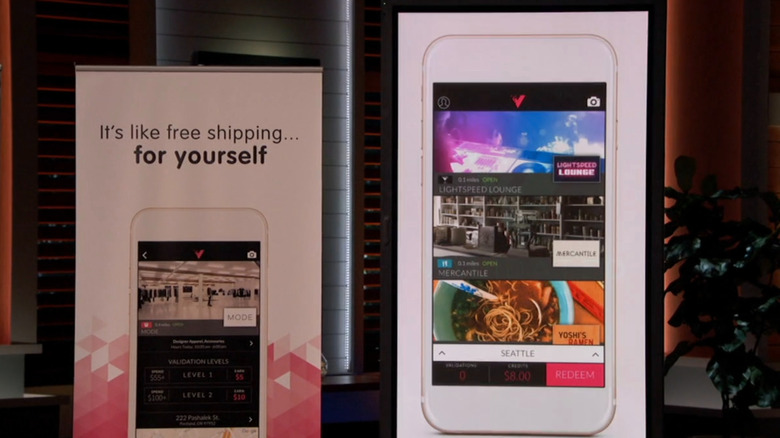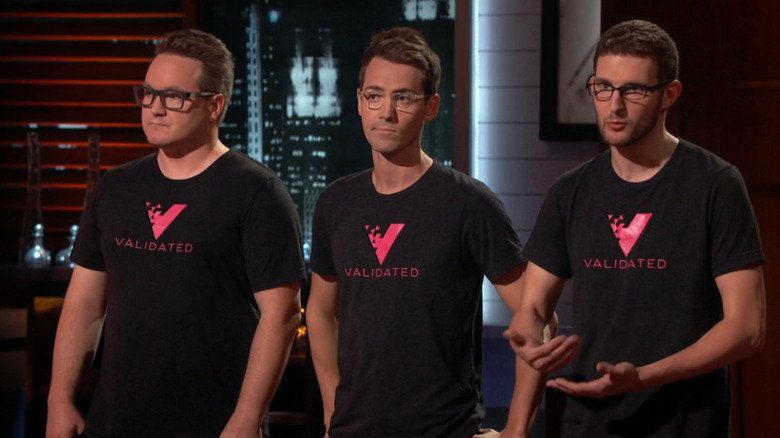What Happened To The Validated App From Shark Tank Season 8?
We may receive a commission on purchases made from links.
Nowadays, with the myriad of services and apps catered to online shopping, consumers have grown less motivated to visit physical locations for their needs. As a result, physical businesses are fighting an ever-escalating battle to attract customers. Portland-based entrepreneurs Ian Lyman, Tov Arneson, and Alex Wilhelm aimed to find a solution through their app Validated. The program lets customers recover any parking, ride-share, or public transport costs so long as they purchase a specific amount from a participating retailer.
The business launched in 2015, with the app launching in 2016. Some years prior, the trio designed a more traditional on-demand parking app, but changed direction to avoid competition from similar startups. From there, they realized that there was a need to alleviate consumers who were frustrated by parking fees and ride-share costs. Implementing brick and mortar locations into the equation and allowing them to come up with spending minimums to validate parking further helped the company scale. In a relatively short amount of time, Validated hit major strides, becoming the first ride-share validation app to partner with Lyft while getting further development help from the accelerator program TechStars Seattle.
But the team's biggest time to shine came when they appeared on "Shark Tank" Season 8. Like previous parking-related apps featured on the show such as the ticket-beating Fixed and valet finder ValPark Mobile, both from Season 7, the Validated team hoped to convey how much. While starting off relatively strong, it became obvious that the seemingly simple app had some big problems to combat from a consumer and operational perspective.
What happened to Validated on Shark Tank
The Validated team entered the tank hoping to get a $250,000 investment for an 8% equity stake in their company. They shared how the appeal of their app primarily lands on consumers who spend their days shopping and want to rack up points. However, the mechanics of the idea left some of the Sharks confused.
Barbara Corcoran wanted to know if she gets free parking just for spending at a certain location. The team explained that the amount of credits earned depends on the merchant and the offer they set. At this point, they were working with 50 merchants throughout the Pacific Northwest, with each averaging 25 validations per merchant and each credit being worth roughly a dollar. They elaborated on the process, involving customers needing to request a QR code to scan before leaving the retailer.
Chris Sacca, an early investor in Uber, found Validated's concept and user experience to be needlessly complex. This mindset was echoed by most of the other Sharks as well, including Lori Greiner and Barbara Corcoran, who both also failed to see a broad enough market. Mark Cuban found their form of navigating sales and currency too difficult. Kevin O'Leary gave the team a brief but visceral tear down, saying he hated the idea and that the business would go to zero.
Validated after Shark Tank
Validated may have failed to receive validation from the Sharks, but that didn't mean all hope was lost for the team. The exposure from a single episode of "Shark Tank" at times can be enough to change a company's fortune practically overnight or at the very least create a sudden surge in business, a phenomenon commonly referred to as the "Shark Tank" effect.
The team behind Validated were well aware of this potential boost and came prepared for what was to come. Shortly after the airing of its "Shark Tank" episode on April 14, 2017, the company announced that Validated would be available across the United States. Prior to this, the app only provided services to a select few Pacific Northwestern states, such as Oregon and Washington. The team also took the Sharks' criticism to heart and made alterations to simplify the service. Now, instead of having to scan receipts or QR codes, credits would be applied automatically after a purchase by linking the user's credit card to their Validated account.
Despite their larger reach and refined service, Validated remained loyal to its Pacific Northwestern roots by partnering with local businesses such as the Lyft and Nike-sponsored Portland-based Biketown Rentals in 2018. However, not long after its time on "Shark Tank" and subsequent developments, some big news would come by that would change Validated's plans.
Why did Validated go out of business?
Even without a deal from "Shark Tank," the Validated team made the most out of the experience by expanding their app's reach and improving the service as a whole, growing its user base to 10,000 by 2019. However, that same year would see a significant turn for Validated as it was announced in May that the company would be acquired by moovel Group, a leading North American mobile solutions provider. Validated would be integrated into moovel's ReachNow platform, a ride-share service founded by BMW and Daimler.
The move was seen as a way of benefiting both brands, with plans to utilize Validated to aid in strengthening relations with public transits and businesses. Co-founder Tov Arneson called the transition " ... a natural next step for Validated" in a PR statement. He continued, "Historically, transportation options have been subsidized by the government and, more recently with new mobility, by venture capital. Validated's technology gives cities the tools they need to offer financial incentives that drive behavior change and help local businesses build loyalty by supporting the transportation choices of their customers." The announcement also stated that Validated would continue to operate as its own entity under the agreement.
Sadly, this wouldn't last long. In July 2019, it was announced that ReachNow would be closing down its Portland and Seattle branches, a little over a year after its New York operation ended and less than two months after its acquisition of Validated. While a site exists for moovel detailing services and solutions similar to Validated's model, there's been no activity on the company's social media since 2020.
What's next for Validated's founders?
There's no denying the ambitions of the Validated team. Their efforts to create a thriving ecosystem that would benefit both consumers and businesses was certainly admirable. And while they may have not had the smoothest "Shark Tank" pitch out there, the team did their best to move forward and improve, an element other "Shark Tank" entrepreneurs can learn from. Nevertheless, the team had a steep slope to climb, as it would have taken a lot to get users accustomed to their process and business model in an already crowded industry.
Since their time with Validated, the trio running the ship have since gone on to lead lengthy and fruitful careers. Co-founder and CEO Tov Arneson went on to develop a long-lasting career in the real estate space, working in Product Head positions for companies such as REEF Technology and Stoa. In 2023, Arneson's entrepreneurial interests sparked again when he co-founded the startup software development firm Stealth alongside Ivan Sunguroff Ofir Zohar.
Following the acquisition of Validated, Alex Wilhelm stuck around with moovel as a Principal Engineer. His expertise in this realm led to future opportunities with Umo Mobility and 3Box Labs before acting as the CEO and co-founder of vehicle recovery tracking software company LoanBridge in early 2023. Ian Lyman would work alongside Arneson at REEF Technology before moving on to Tokyo-based IT consulting firm oVice, Inc, where he became Chief Product Officer. He continues to work in advisory and head of product roles for various software companies.
"Shark Tank" is available for purchase on Prime Video.
